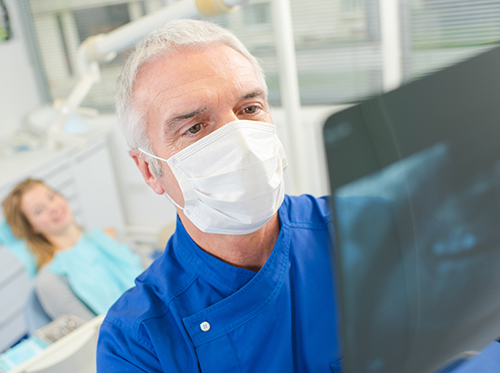Xerostomia: What does that mean anyway?
July 26th, 2023

Does your mouth always feel like it’s dry? If it does you may be suffering from xerostomia. Xerostomia is defined as dry mouth resulting from reduced or absent saliva flow. There are various medical conditions that can cause this type of dry mouth, which you can ask more questions next time you visit us at Dearborn West Dental.
Xerostomia can factor into both minor and more serious health problems. It can affect the ability to eat and enjoy food and it can jeopardize one’s dental health. Some of the more common symptoms can include sore throat, burning sensation in the oral cavity or tongue, and difficulty swallowing.
One of the more serious problems associated with dry mouth is an increased risk of tooth decay. Decrease in saliva causes more plaque to form and there is less saliva to act as a buffer to the things we eat and drink. Less saliva also means more food debris is retained in the mouth. These things can lead to an increase in tooth decay.
So, what causes xerostomia?
There are several things that may cause xerostomia. Among the biggest culprits are prescription medications. Some examples are antihistamines, antidepressants, anti-hypertensives, anti-anxiety agents, anti-diarrheals, bronchodilators, and muscle relaxers.
Certain diseases can also cause dry mouth. The more common ones include rheumatoid arthritis, lupus, diabetes, hypertension, and thyroid disease. Xerostomia is also common in patients being treated for cancer. Head and neck radiation as well as certain chemotherapy drugs can cause severe dry mouth.
What should you do if you are experiencing dry mouth symptoms? First make sure to hydrate with plenty of water. If you are taking medications that cause xerostomia, make sure to drink water before taking the medication as well as a full glass of water with the medication. Be diligent with brushing and flossing and discuss your condition at your next appointment with Dr. Robert Farber, Dr. Corey Farber, Dr. Harry Morris, Dr. Henry Bryan, and Dr. Mark Isler. We can recommend specific products to help moisten the oral cavity and reduce your symptoms such as saliva substitutes, xylitol products, and certain toothpastes. Another option may be a prescription home fluoride treatment to help prevent new cavities. You may want to try gum or candies to stimulate saliva flow but make sure they are sugar free! Avoid food and beverages that dehydrate such as caffeine and alcohol.
Xerostomia is a common problem that is currently on the rise. Our team can help you to reduce any symptoms and improve your comfort while living with a dry mouth. Contact our Dearborn office today!




 Website Powered by Sesame 24-7™
Website Powered by Sesame 24-7™